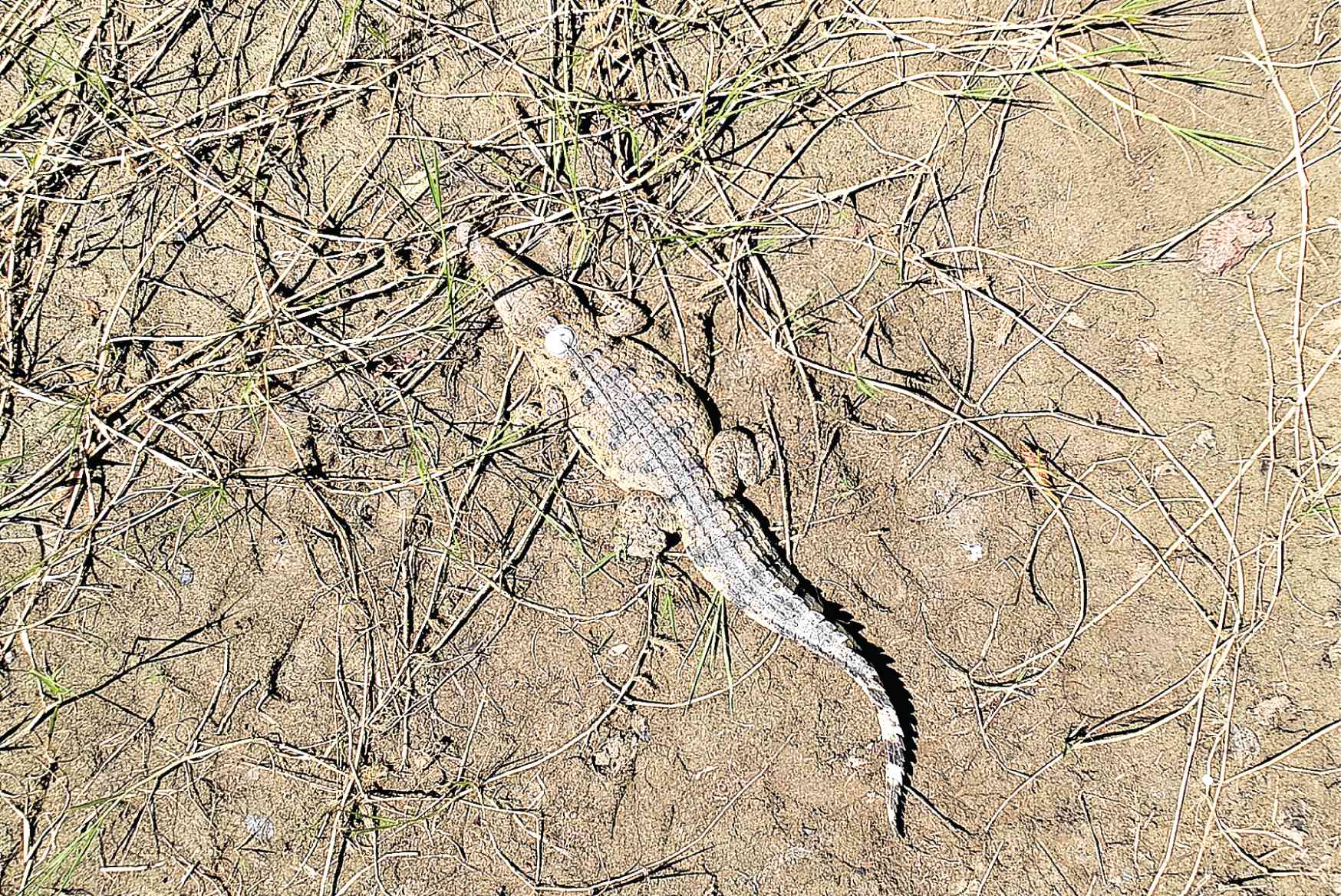PH crocs: Shy, secretive—and soon gone?

CRITICALLY ENDANGERED Scientists are calling for the protection and conservation of the Philippine crocodile, a fast declining species that has been listed in the International Union for Conservation of Nature Red List of Threatened Species. —ERWIN M. MASCARIÑAS
PILAR, Siargao Island—National scientist Dr. Angel Alcala and fellow experts have raised the call for more drastic measures to protect and conserve the Philippine crocodile (Crocodylus mindorensis), saying the species is nearing extinction.
“In the first place, there are just too few of them left in the wild. The wild population should be protected and should be a priority as the number of the Philippine crocodile is fast declining,” said Alcala, considered one of the leading experts on amphibian and reptile research.
“Our Philippine crocodile is unique compared to other crocodilian species in the world. Our crocodile is shy and very secretive,” Alcala added, noting that the severely threatened crocodilian species does not form into groups.
The only time they are with another crocodile, he said, is when they mate.
“The problem with that is, if not protected, they will not be able to breed normally,” he said.
Marine biologist Rainier I. Manalo, program head of crocodile research and conservation of the Crocodylus Porosus Philippines Inc. (CPPI), explained that the Philippine crocodile is a smaller freshwater cousin of the more abundant saltwater crocodile (C. porosus).
“The Philippine crocodile is much smaller at around 10 feet, compared to the saltwater crocodile like the one caught in Agusan Marsh, which was (named) Lolong, that grew as much as 20-feet long,” he said.
“We should be proud that we have a very unique crocodile, which is only found in the Philippines,” said Manalo.
Red list
The International Union for Conservation of Nature (IUCN) Red List of Threatened Species website listed the Philippine crocodile as critically endangered.
It noted that fewer than 200 adults were estimated to be living in the wild and the population may be declining despite reintroduction attempts.
“There has been an observed decline in the overall population of 82 percent in the known localities and an estimated and inferred decline in the number of adults in the population by 85 percent to 94 percent over the last three generations. Habitat loss, persecution and entanglement in fishing nests are the primary ongoing threats,” it said.
Conservation efforts
In March 2013, 36 juvenile Philippine crocodiles were released in Paghungawan Marsh in the town of Pilar, as part of the Siargao Island Crocodile Research and Biodiversity Conservation Project in the province of Surigao del Norte.
The release was spearheaded by the Biodiversity Management Bureau of the Department of Environment and Natural Resources (DENR), in a joint effort with the CPPI, National Museum of the Philippines, Silliman University Angelo King Center for Research and Environmental Management, and the municipal government.
Dr. Jurgenne Honculada Primavera of the National Academy of Science and Technology explained the importance of the Philippine crocodile in the ecosystem.
“These predators keep up the food chain going, maintaining the ecological balance needed,” said Primavera, a chief mangrove scientific adviser of the Geological Society of London and Time magazine’s Heroes of the Environment for 2008.
Under Republic Act No. 9147, or the Wildlife Act, killing a Philippine crocodile carries a minimum penalty of six years in prison or a fine of P100,000, or both.
The protection of crocodiles and conservation of their habitat is the responsibility of the Protected Areas and Wildlife Bureau of the DENR.














